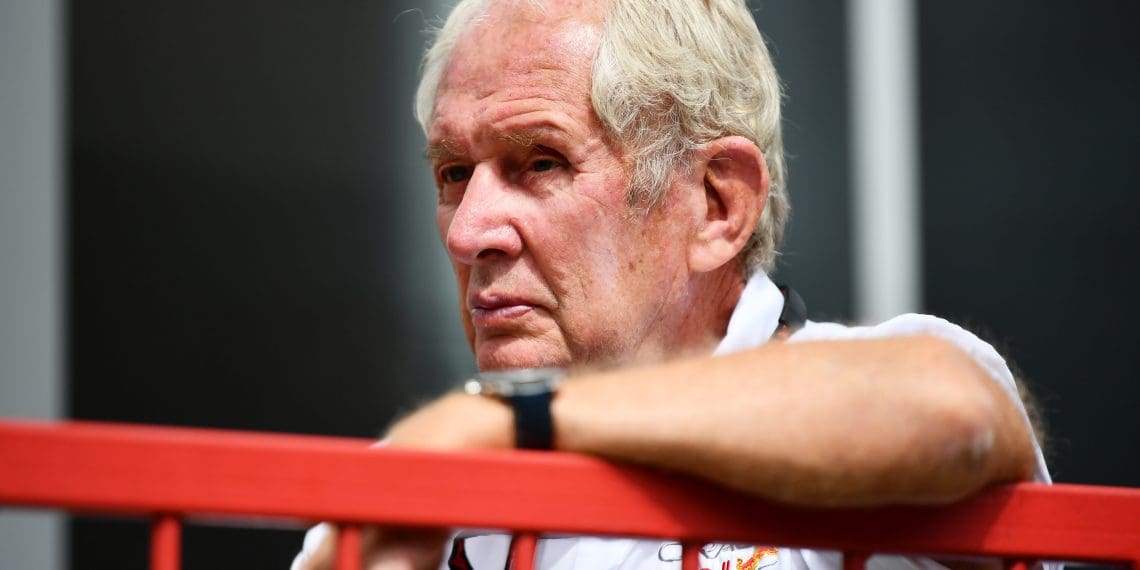In a damning critique, Red Bull advisor Helmut Marko pulled no punches as he expressed his dissatisfaction with French Formula 1 driver, Isack Hadjar’s reaction to his unfortunate mishap at the Australian Grand Prix. The rookie driver’s misfortune unfolded during the formation lap of the Albert Park race, where he was adversely impacted by the challenging wet weather conditions, resulting in a crash just at Turn 2. This untimely incident meant Hadjar was unable to make his debut Grand Prix start, a turn of events that left him visibly devastated.
Marko, a pivotal figure in the Red Bull camp, made no secret of his discontent with Hadjar’s emotional response to the incident. Hadjar was found inconsolable post his crash, a reaction Marko deemed embarrassingly unprofessional for the sport.
The world of Formula 1 is no stranger to the intense pressures and emotional highs and lows that are part and parcel of the sport. However, Marko’s firm stance suggests an expectation of resilience and stoic professionalism, even in the face of disappointment. His comments have further ignited the debate on the emotional toll motor racing can have on its participants.
While Hadjar’s tears may have been a consequence of the immense pressure and disappointment of the moment, Marko’s reaction highlights the unspoken expectation of grit and emotional fortitude that is often demanded of athletes in high-pressure sports like Formula 1.
The incident at the Australian Grand Prix has served as a stark reminder of the intense scrutiny and high stakes nature of Formula 1 racing. Hadjar’s emotional outpouring certainly brought the human element of the sport to the fore, but it also raised questions about the emotional resilience required of drivers in the fiercely competitive and high-pressure environment that is Formula 1.
—
厳しい批評の中で、レッドブルのアドバイザーであるヘルムート・マルコは、オーストラリアグランプリでの不運なミスに対するフランスのF1ドライバー、イサック・ハジャールの反応に対する不満を率直に表明しました。このルーキー・ドライバーの不運は、アルバートパークレースのフォーメーションラップ中に展開され、厳しい湿った天候条件によって悪影響を受け、ターン2でクラッシュする結果となりました。この不適切な出来事により、ハジャールはデビューグランプリのスタートを果たすことができず、彼は明らかに打ちひしがれていました。
レッドブル陣営の重要な人物であるマルコは、ハジャールのこの出来事に対する感情的な反応に対する不満を隠すことはありませんでした。ハジャールはクラッシュ後に慰めようのない状態で発見され、この反応をマルコはスポーツにとって恥ずべき非専門的なものと見なしました。
F1の世界は、スポーツの一部である激しいプレッシャーや感情の高低に慣れていないわけではありません。しかし、マルコの堅い立場は、失望に直面してもレジリエンスと冷静なプロフェッショナリズムが期待されることを示唆しています。彼のコメントは、モーターレーシングが参加者に与える感情的な負担についての議論をさらに加速させました。
ハジャールの涙は、その瞬間の巨大なプレッシャーと失望の結果であったかもしれませんが、マルコの反応は、F1のような高圧なスポーツにおいてアスリートにしばしば要求される気力と感情的な強さの暗黙の期待を浮き彫りにしています。
オーストラリアグランプリでの出来事は、F1レースの厳しい監視と高い利害の性質を思い起こさせる鮮明なリマインダーとなりました。ハジャールの感情的な吐露は確かにスポーツの人間的な要素を前面に押し出しましたが、競争が激しく高圧な環境であるF1でドライバーに求められる感情的なレジリエンスについての疑問も提起しました。
この物語が展開し続ける中で、ハジャールがこの事件の余波とそれに伴う反応を乗り越える様子にスポットライトが当たり続けることは避けられません。特に、彼がマルコの批評にどのように応じ、この挫折からどのように立ち直るかは、ファンや批評家の注目を集めることでしょう。間違いなく、この不運な事件は、フォーミュラ1レースの複雑で魅力的な世界に新たな層を加えました。










